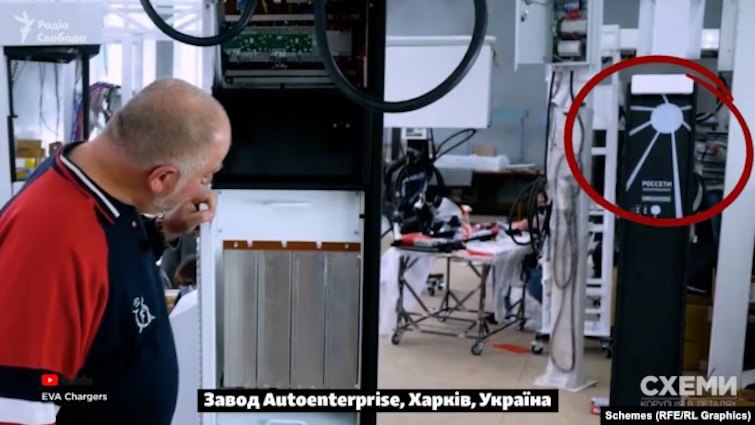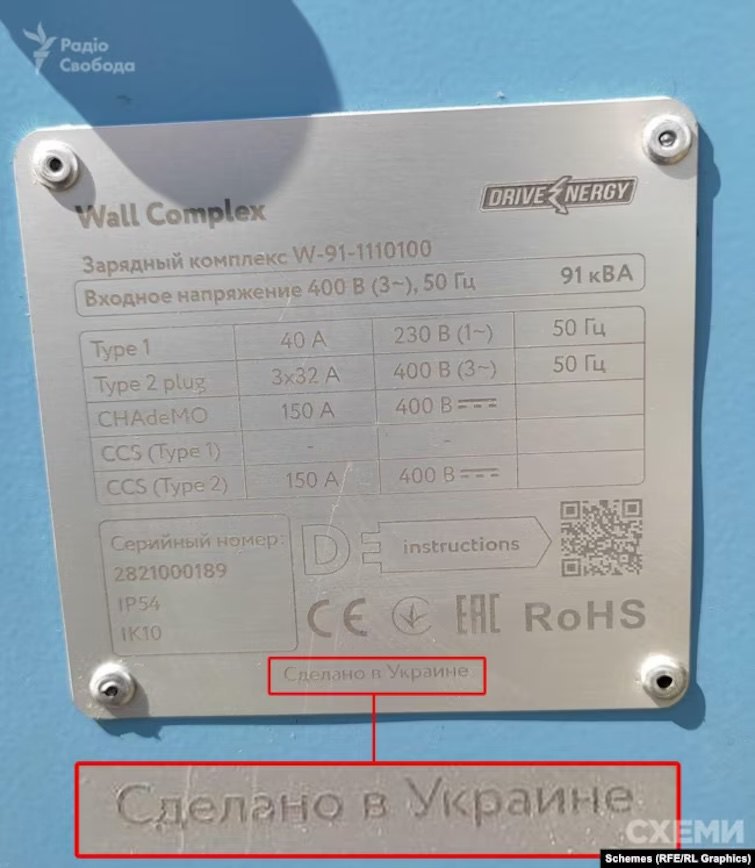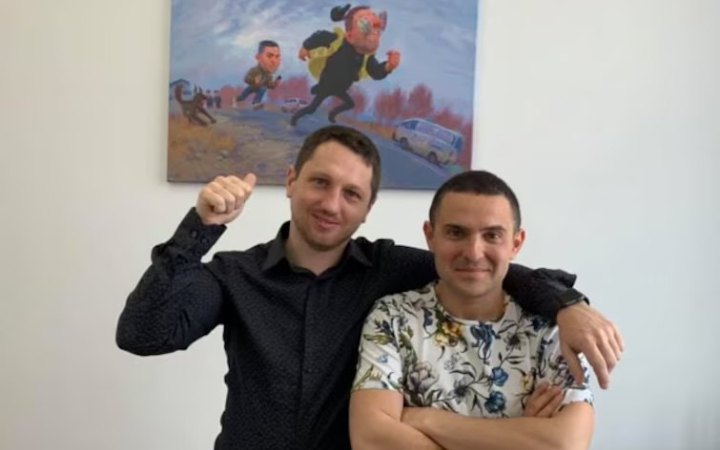Kharkiv-based Autoenterprise, a company associated with MP Oleksandr Kunytskyy (Servant of the People), supplied Russians with car charging stations that ended up in the occupied Crimea. This is stated in the material of Schemes.
Prior to his election as an MP, Kunytskyy held senior positions in this Kharkiv-based company, and after receiving the mandate, he made the official owner, Dmytro Nikonov, his assistant. According to the journalists, he also set up his MP's office right in the company.
Autoenterprise produces charging stations both for itself and for other companies under their brands. Autoenterprise's stations are used by the Greencar brand in Montenegro, EcoCars in Armenia, Tokbor in Uzbekistan, and ElectroEco in Moldova. The company has been actively selling its products in Russia since at least 2016.
The customers were mainly private clients, but Ukrainian chargers were also ordered by Russian government agencies through intermediaries. And the Kharkiv plant knew who it was fulfilling orders for, as the products were immediately branded as FGS UES at the factory.

"AE Factory, a company of the Autoenterprise group, was engaged in the supply of equipment from Kharkiv to Russia. In general, the Russian sales geography is wide - Lipetsk, Balashikha, Belgorod, Voronezh, Moscow, Zelenodolsk, Krasnodar," the journalists noted.
The company has remote access to its chargers. After the full-scale invasion began, the inscription "Putin is a f*ck" was broadcast on the screens of FGS UES chargers, and Nikonov himself boasted about it on social media.
In an interview, Alina Mustafayeva, a Kharkiv MP from the Servant of the People party, who is also associated with the company, mentioned such possibilities:
"We monitor the stations ourselves. Without the client's participation. I have a whole separate department, the service department, and they monitor every half hour to see if the station has gone offline or if there is any other error. And they immediately inform the service, which is located in a particular Region, to go and check it," she said.
In Crimea, in 2023, the occupation authorities pompously opened a hub of petrol stations based on Ukrainian-made Autoenterprise stations under the brand name DriveEnergy. Journalists began to find out how the Ukrainian chargers got to Crimea.
"Such questions from Schemes were very disturbing for those involved in this investigation. After the journalists asked them, false publications about the Schemes editorial office began to appear one after another. And they were reposted by the assistant of Kunytskyy, the official owner of Autoenterprise, Dmytro Nikonov, and the head of the holding Alina Mustafayeva," Schemes reported.
Kunytskyy claims that he does not know how the Kharkiv chargers got to the occupied territory. The official owner of Autoenterprise, Dmytro Nikonov, firmly states that his company has never supplied stations to the occupied Crimea. The head of the company, Alina Mustafayeva, also insists on this: they sold to Russia, but never to Crimea.
However, journalists found out that this was made with a help of a Crimean businessman. Ruslan Devlechayev decided to take advantage of Russia's green transport development programme, which has been extended to the occupied Crimea. He decided to build a network of power stations for charging cars in Crimea and contacted a Kharkiv-based company.
On 28 July 2020, the man entered mainland Ukraine from Crimea through the Kalanchak checkpoint. Four days later, he left Ukraine for Russia. Six months later, he opened a large store called DriveEnergy in Simferopol. On social media, it is called "the largest showroom of electric vehicles in Crimea". At first, it sold only electric cars, but in 2021, a dealership agreement was signed between Kharkiv-based AE Factory, part of the Autoenterprise group, and Ruslan Devlechayev's DriveEnergy.
"Schemes received a copy of this document with signatures and seals. It states that the Kharkiv-based company AE Factory was to sell charging stations and components to the company of Crimean resident Devlechayev, manufactured in Kharkiv under the DriveEnergy brand, during 2021-2022. It was also to train its staff to handle the equipment and provide warranty service," the journalists said.
Devlechayev prudently registered DriveEnergy, the company with which the Kharkiv residents signed the contract, outside of Crimea, in Krasnodar, Russia.
But there are a number of facts that show that Devlechayev could hardly hide the Region in which he planned to install their stations. His only offline store under this brand operated in the occupied Crimea, which was openly stated in advertisements on various platforms. The correspondence and testimonies of former Autoenterprise employees obtained by journalists also testify to the awareness of Kharkiv residents.
In the draft agreement between the companies, the region of use of the chargers was specified as "Southern District of the Russian Federation" with the note "except for the Autonomous Republic of Crimea". But then this note disappeared from the agreement, and it was signed in this form. The Russian authorities included Crimea in their Southern District back in 2016.
Two different sources who worked at the Kharkiv company at the time confirmed to Skhemy that this was the intention, and that it was deliberately implemented by the company's head, Alina Mustafayeva, a Kharkiv MP from the Servant of the People party.
The first source of Skhemy in the company told journalists the following:
"Crimea 'disappeared' because Mustafayeva was against such positions in the contract, because we had no right to trade with the occupied territory. Alina Elmanivna gave us an order to continue working with Ruslan Devlechayev, but without any references to the Crimea in official documents."

The second source said that "Mustafayeva, who was actually the head of the Autoenterprise network, knew that after the chargers were shipped, they would be used in the territory of the ARC. There were several telephone conversations between Mustafayeva and Ruslan Devlechayev about the possibility of deliveries to Crimea. Everyone who was involved in the sale of chargers in the company knew that Ruslan was from Crimea and was operating there. They even joked with each other that it was a betrayal and that it was important that no one knew about it, because then the company would have big problems. Ruslan dealt with the logistics from the Russian Federation to the Crimea himself, and the task of AE Factory was only to sell and deliver the goods to the Russian Federation.”








